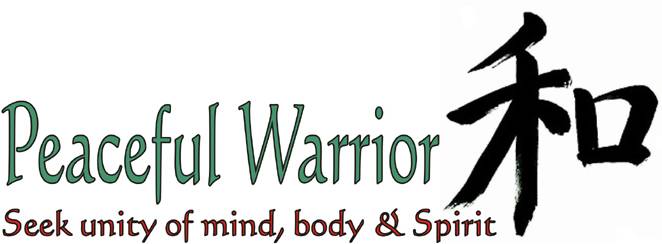We provide prevention and management of aggression training, nationally and internationally, for staff working in high risk environments, including:
- Health Care Facilities
- Educational Facilities
- Airport Facilities
- Industrial Facilities
- Corporate Facilities
The specialised control and restraint training will provide staff with ethical and effective prevention strategies, physical and psychological self-defence manoeuvres, disengagement skills and standard therapeutic holds to respond individually or as a team in the management of aggression.

History
In the 1980's there was widespread concern over growing aggression e.g., assaults on prison officers, hostage situations and riots within the United Kingdom Prison Service. The Physical Education branch of the prison service was asked to develop a curriculum for the management of aggressive inmates. The training curriculum was developed and the control and restraint techniques were evaluated and considered legally and ethically appropriate for use within the U.K. prison service.
The U.K. prison service model of control and restraint was assessed, evaluated and modified to concur with legal and ethical principles of health care and was then incorporated into the U.K. Health Service.
Control and restraint training is now accepted as an integral part of providing a safe working environment.
By incorporating disengagement and control and restraint principles of Tai Chi Chuan, along with the communication skills of NLP, we now offer a comprehensive and advanced control and restraint training system to suit your needs...
Below is an outline of our 1 day program. More indepth programs can be provided.

Learning Outcomes
- To be aware of the definitions of violence and aggression
- To have a knowledge of how to recognise early signs of aggressive behaviour
- To be aware of current perspectives on how to deal with violence and aggression
- To be aware of the different ways of helping people who are aggressive
- To explain "reasonable force" as it applies to a safe approach
- To control situations through de-escalation techniques
- To be able to physically defend yourself if needed.
Programme
9.30am Introduction
9.40am What is violence and aggression?
9.50am Why do people respond aggressively?
10.00am Recognising the signs of aggression.
11.00am Coffee
11.15am Different methods (models) for dealing with a conflict situation
11.45am The Legal position - "Reasonable force"
12.00pm Policy, procedures and risk assessment
12.30pm Caring for the individual
12.40pm Safety and working alone
12.55pm Summary and evaluations
1.00 - 2.00pm - 1 hour lunch
Afternoon Practical Session
Psychological and physical manoeuvres for de-escalating (mutual understanding - empathy; break state - take a break, change subject, offer a drink; NLP - deletions, distortions & generalisations).
Use of positive/negative language
Use and control of space
Use of balance
Breaks and escapes
Effective striking (how to punch and kick, where to strike)
4.00pm Close & Evaluations
Test
 Stress is the "wear and tear" our bodies experience as we adjust to our continually changing environment; it has physical and emotional effects on us and can create positive or negative feelings. As a positive influence, stress can help compel us to action; it can result in a new awareness and an exciting new perspective. As a negative influence, it can result in feelings of distrust, rejection, anger, and depression, which in turn can lead to health problems such as headaches, upset stomach, rashes, insomnia, ulcers, high blood pressure, heart disease, and stroke. With the death of a loved one, the birth of a child, a job promotion, or a new relationship, we experience stress as we readjust our lives. In so adjusting to different circumstances, stress will help or hinder us depending on how we react to it.
Stress is the "wear and tear" our bodies experience as we adjust to our continually changing environment; it has physical and emotional effects on us and can create positive or negative feelings. As a positive influence, stress can help compel us to action; it can result in a new awareness and an exciting new perspective. As a negative influence, it can result in feelings of distrust, rejection, anger, and depression, which in turn can lead to health problems such as headaches, upset stomach, rashes, insomnia, ulcers, high blood pressure, heart disease, and stroke. With the death of a loved one, the birth of a child, a job promotion, or a new relationship, we experience stress as we readjust our lives. In so adjusting to different circumstances, stress will help or hinder us depending on how we react to it.
How Can I Eliminate Stress from My Life?
As we have seen, positive stress adds anticipation and excitement to life, and we all thrive under a certain amount of stress. Deadlines, competitions, confrontations, and even our frustrations and sorrows add depth and enrichment to our lives. Our goal is not to eliminate stress but to learn how to manage it and how to use it to help us. Insufficient stress acts as a depressant and may leave us feeling bored or dejected; on the other hand, excessive stress may leave us feeling "tied up in knots." What we need to do is find the optimal level of stress which will individually motivate but not overwhelm each of us.
How Can I Tell What is Optimal Stress for Me?
There is no single level of stress that is optimal for all people. We are all individual creatures with unique requirements. As such, what is distressing to one may be a joy to another. And even when we agree that a particular event is distressing, we are likely to differ in our physiological and psychological responses to it.
The person who loves to arbitrate disputes and moves from job site to job site would be stressed in a job which was stable and routine, whereas the person who thrives under stable conditions would very likely be stressed on a job where duties were highly varied. Also, our personal stress requirements and the amount which we can tolerate before we become distressed changes with our ages.
It has been found that most illness is related to unrelieved stress. If you are experiencing stress symptoms, you have gone beyond your optimal stress level; you need to reduce the stress in your life and/or improve your ability to manage it.
How Can I Manage Stress Better?
Identifying unrelieved stress and being aware of its effect on our lives is not sufficient for reducing its harmful effects. Just as there are many sources of stress, there are many possibilities for its management. However, all require work toward change: changing the source of stress and/or changing your reaction to it. How do you proceed?
1. Become aware of your stressors and your emotional and physical reactions.
Notice your distress. Don't ignore it. Don't gloss over your problems.
Determine what events distress you. What are you telling yourself about meaning of these events?
Determine how your body responds to the stress. Do you become nervous or physically upset? If so, in what specific ways?
2. Recognize what you can change.
Can you change your stressors by avoiding or eliminating them completely?
Can you reduce their intensity (manage them over a period of time instead of on a daily or weekly basis)?
Can you shorten your exposure to stress (take a break, leave the physical premises)?
Can you devote the time and energy necessary to making a change (goal setting, time management techniques, and delayed gratification strategies may be helpful here)?
3. Reduce the intensity of your emotional reactions to stress.
The stress reaction is triggered by your perception of danger...physical danger and/or emotional danger. Are you viewing your stressors in exaggerated terms and/or taking a difficult situation and making it a disaster?
Are you expecting to please everyone?
Are you overreacting and viewing things as absolutely critical and urgent? Do you feel you must always prevail in every situation?
Work at adopting more moderate views; try to see the stress as something you can cope with rather than something that overpowers you.
Try to temper your excess emotions. Put the situation in perspective. Do not labor on the negative aspects and the "what if's."
4. Learn to moderate your physical reactions to stress.
Slow, deep breathing will bring your heart rate and respiration back to normal.
Relaxation techniques can reduce muscle tension. Electronic biofeedback can help you gain voluntary control over such things as muscle tension, heart reate, and blood pressure.
Medications, when prescribed by a physician, can help in the short term in moderating your physical reactions. However, they alone are not the answer. Learning to moderate these reactions on your own is a preferable long-term solution.
5. Build your physical reserves.
Exercise for cardiovascular fitness three to four times a week (moderate, prolonged rhythmic exercise is best, such as walking, swimming, cycling, or jogging).
Eat well-balanced, nutritious meals.
Maintain your ideal weight.
Avoid nicotine, excessive caffeine, and other stimulants.
Mix leisure with work. Take breaks and get away when you can.
Get enough sleep. Be as consistent with your sleep schedule as possible.
6. Maintain your emotional reserves.
Develop some mutually supportive friendships/relationships.
Pursue realistic goals which are meaningful to you, rather than goals others have for you that you do not share.
Expect some frustrations, failures, and sorrows.
Always be kind and gentle with yourself -- be a friend to yourself.

Become a Peaceful Warrior
We are all peaceful warriors in training and the most important battles we fight are inside. Each of us strives for a more peaceful heart, but there are times that we also need a warrior’s spirit . .
We will explore the martial spirit, the art of being, personal interaction and development though Tai Chi and NLP. If you keep doing what you've always done, you'll keep getting what you've always got. Now is the time to explore change. Learn to blend with life rather than fight against it. Our ability to relax into life reflects our willingness to trust and let go.
Pain is a relatively subjective, physical phenomenon; suffering can be seen as our psychological resistance to what happens. Events may create physical pain, but they do not in themselves create suffering. Resistance creates suffering. Stress happens when your mind resists what is...The only problem in your life is your mind's resistance to life as it unfolds.
Key Benefits
- Learn to Blend with life
- mindfulness
- learn a Balanced Approach to mind and body

One moment of patience may ward off great disaster.
One moment of impatience may ruin a whole life.
Patience is quiet hope and trust that things will turn out right. You wait without complaining. You are tolerant and accepting of difficulties and mistakes.
You picture the end in the beginning and persevere to meet your goals. Patience is a commitment to the future.
The Chinese character for patience shown above contains the ideas for patience, perseverance and endurance. This single character can be a bit ambiguous or flexible as it can also mean to endure, to bear, to put up.
simply decide what this character means to you within the general meaning, but keep it a mystery to others.

Training
"After completing the NLP Diploma Course I can't stop raving about it to my wife colleagues and friends" - Lewis, Occupational Therapist
"I have just completed the most fantastic training I have ever done! The NLP course was amazing, looking forward to the next one" - Akeila, Life Coach
"Just wanted to say I really got a huge amount out of the CBT course" - Sue, Director of Nursing
"We didn't just want an off-the-shelf courses so Mark designed one just for us which made all the difference" - Joan, Natural England
"We have worked with many training organisations and Mark came highly recommended. He is now our Key supplier" - David, Birmingham Council
"There are many NLP trainers out there but Mark really connected with us and made it real" - Sarah, Strategic Health Authority
"I have been on NLP workshops before but somehow Mark made it more accessible, I can see how I can use it with our pupils" - Jane, Teacher
"I attended the NLP Diploma course to work with patients and I was suprised how it helped me work with me too!" - Clare, Nurse
"I attended Preceptor training with our PCT and was staggered how useful Mark's training is to both my work and life. I would definately recommend him to others." - Karen, Nurse
"Mark ran a control & restraint course at our school which really opened my eyes, I will be recommending to others" - Kath, school teacher
"Thank you for the INSET training, it was an intense day. Staff expressed that the day was extremely helpful and had left them with confidence" - David, head-teacher
"I really enjoyed the NLP course and can see myself doing more of the same in the future. Thanks for making it fun as well as thought provoking and genuinely useful." - Catherine, NHS national improvement lead
"I am getting amazing results from the hypnotherapy training, I can't thank you enough" - Ray, Counselor and psychotherapist
"On the coaching course the models provided an excellent platform and interactive sessions were really effective" - Jacqui - Leadership Manager, NHS
"I attended Mark’s NLP Practitioner course and gained a tremendous amount. The skills I learnt in such a short space of time have supported me both in my professional and personal life. I now feel much more confident in work situations, with the added bonus of a fixed bird phobia, which has been with me since a child. And it’s all down to a pigeon sitting on my shoulder wearing roller skates" - Alison - NHS Business Manager
"I have had the pleasure of attending one of Marks hypnotherapy courses and can honestly say the course is changing my life" - Pete - IT Manager
"the hypnosis course was amazing and am having lots of fun testing out some of the amazing things I have learnt" - Andrea
I wanted to say thank you for the NLP Diploma course you did this week at HEfT (NHS). I really enjoyed it and am still enjoying my juices (I reframed diet) - Anne
one-to-one sessions
"The phobia cure worked so well, I went and got something else fixed!" - Helen - Birmingham
"Mark put me so at ease so quickly - I felt great. Now I can get on with my life" - John - Redditch
"I'd tried everything without success, but this worked!" - Mrs. Green - Birmingham
"After just one session the fear of spiders was completely gone" - Joan - Birmingham
"I have been living with fear for years. I am so glad to be free of it, I feel great." - David - Sutton Coldfied
"Just one session and my phobia has gone" - Steve - Redditch
"If I had know it would be this easy to quit smoking, I'd have booked to see Mark sooner!" - Chris - Northfield
"I though I'd tried every mothod of controlling my weigh with no lasting success. Mark soon fixed this and the weigh as stayed off" - Debbie
"Mark ran an NLP course for my company so I booked to seem as a one-to-one client because I knew I could trust him" - David - Warwickshire
"I had suffered with anxiety for most of my life and Mark somehow sorted it out in just two sessions" - Susan - Bromsgrove
"Wow I feel brilliant!! Is this for real - I keep looking for the fear of flying but I can't find it anywhere!!!... How did you do it!" - Alison, Kings Heath
for one-2-one sessions visit our sister site www.hypnotherapywestmidlands.com